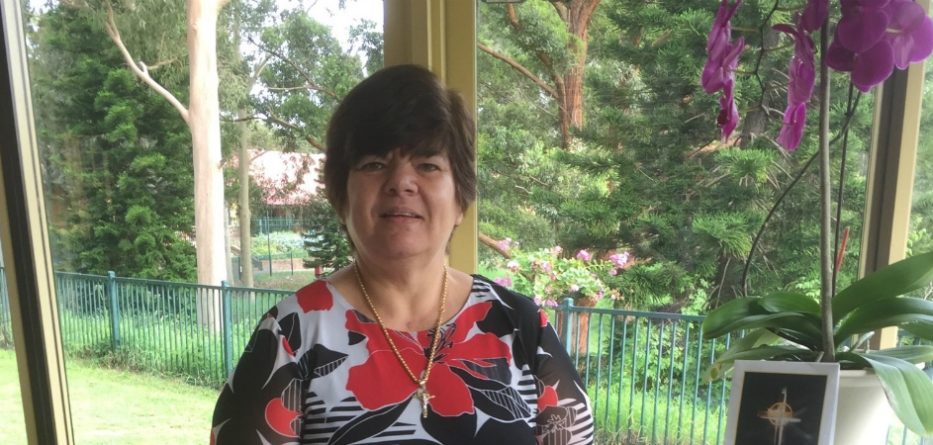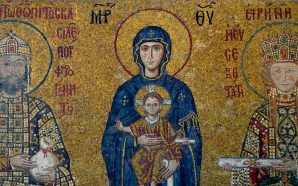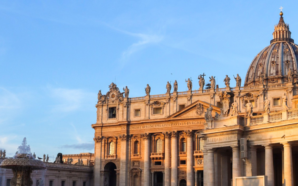In a year which began with catastrophic bushfires and moved straight into the socially isolating effects of the COVID-19 virus, the need for a caring presence to help people with mental health challenges has never been greater, says retiring CatholicCare mental health chaplain Sue Robertson.
Sue, not just a qualified and registered lay chaplain but also a registered counsellor and psychotherapist who specialises in disaster counselling and support, has worked with CatholicCare Parramatta for 11 years, first in pastoral care roles and, for the past eight years, in mental health chaplaincy with Western Sydney Local Health District (WSLHD) Mental Health.
“Our association with CatholicCare goes back to when my husband and I started teaching pre-marriage education with them,” she says. “We still do that too for the Office of Life Family and Marriage, and have always enjoyed it tremendously.”
From there, Sue began working in solo parents ministry with CatholicCare and then in pastoral roles at St Joseph’s Hospital in Auburn with St Vincents/Mater Health before moving into her role in mental health chaplaincy at WSLHD.
Sue is also a St John’s Ambulance Chaplain for NSW based in the Western Region and has become a Disaster Recovery Chaplain with the Disaster Recovery Chaplaincy Network. She specialises in mental health strategies for first responders, helping to reduce the incidence of Post-Traumatic Stress Disorder.
During the bushfires through the summer of 2019/2020, she provided chaplaincy support at the Glenn Innes, Ulladulla and Batemans Bay Disaster Recovery Centre as well as the Rural Fire Service centre in Olympic Park.
“It’s been an eye-opener,” she says, of the torrid start to 2020. “I was really journeying with people’s suffering and accompanying them as they faced profound hardship.
“Many of the first-responder organisations now include chaplaincy in their employee assistance programs. They recognise the importance of faith, hope and forgiveness in situations of profound distress and hopelessness and that chaplains have an important role to play in God’s name in looking after those who need help.”
Sue says that despite the distressing situations she often enters into, she finds deep fulfilment in chaplaincy.
“It’s a ministry I love profoundly,” she says.
“Sometimes it’s not visible, the impact you have on somebody. Sometimes it only becomes visible years later.”
Sue describes the role of chaplain as a kind of ‘loitering with intent’.
“It’s just to be there, and in being there, to allow yourself to be invited into conversations of the person’s suffering and from there to be invited to a more in-depth encounter which helps one build on their spiritual resources,” she says.
With her role for CatholicCare at WSLDH Mental Health, Sue has coordinated the department, providing pastoral coverage for western Sydney and says she is mainly involved with pastoral visitation, providing people with whatever religious or spiritual resources necessary and helping them remain connected, providing access for patients to the Sacrament of the Eucharist and other rituals and small group activities such as meditation and access to Mass, and making the necessary approaches to clergy, usually the Camillian fathers who are involved with hospital chaplaincy in the Diocese of Parramatta, to provide the other sacraments and supply for Mass.
“But as chaplain, we see Catholics and also non-Catholics, so for some people it’s about helping them tap into their own spiritual resources for their health and well-being, to help them strive towards wellness,” she says.
“A lot of mental illness has a spiritual component. If they can tap into their spiritual resources, they can have a better health outcome.
“I have visited many people suffering mental health issues who have gone on to live in the community, get married and have a fulfilled life, and that is beautiful to witness.
“It’s about helping people to live life to the full. The Gospel calls us to help people live life to the full. For me, it’s about loving God and then loving your neighbour as yourself.
“Sometimes people find that very difficult and part of my role is to help them understand what it means to love oneself and to forgive themselves or others.”
Sue, who has been a parishioner at Holy Spirit Parish, St Clair, says that maintaining and nourishing her own faith and drawing on God’s strength helps her to stay strong and help others.
“I need to drink from the Lord’s well, so that they can drink of His well in me,” she says.
“If you don’t have the resources, you have nothing to give. If you’re not able to lay everything at the foot of the cross, you’ll get compassion fatigue.
“I can do nothing without God. It’s God who lives in me who I’m able to give to others.”
Anna Phillips, Chaplaincy Manager for CatholicCare, says that on behalf of the Diocese of Parramatta, CatholicCare endeavours to ensure that chaplaincy services are available to those who find themselves in hospitals and correctional centres within the Diocese.
“Chaplains provide a compassionate and non-judgemental presence for people in times when they find themselves in unexpected and often traumatic situations,” she says.
“Spiritual, emotional and sacramental support is available for all throughout the hospitals and correctional centres.
“During her time at Cumberland Hospital, Sue was that gentle, caring presence for many as she helped them through difficult times. She was well-respected throughout the hospital as she went about her work providing a listening ear for staff, patients and their families.”
Sue has recently resigned from her chaplaincy role with CatholicCare because she is moving to a property in the southern tablelands of NSW.
But she is not about to give up her dedication to chaplaincy altogether.
“I’m thinking of starting up a farmgate ministry, especially now, with the coronavirus meaning that so many people are feeling lonely and isolated. This can be especially difficult in rural and regional areas,” she says.
“With my social work and counselling qualifications, I think I could be of help with that.
“And also just to go and see people suffering with the drought, which is a long-term kind of suffering.
“I’m waiting to find where is God calling me in my new life in the country. But farmgate ministry is not something regularly done and I think it could be very helpful for people who feel isolated.”
Sue’s work in chaplaincy has been recognised with a variety of honours, including Volunteer Australia’s Volunteer of the Year for her ministry in Penrith and the Blue Mountains through St John’s Ambulance with first responders. She will also be made a Member of the Order of St John in May.
“I feel humbled by it and a bit overwhelmed,” she says of the awards. “I’m grateful that the work has been acknowledged so that others might be inspired to follow in my footsteps.
“It is rewarding to be acknowledged as a lay chaplain. When I first started out, we were called pastoral workers, but now we are acknowledged as lay chaplains. I feel like I have answered my calling and that people have acknowledged my calling. It’s been a rocky but blessed road and I’m thankful for it all.”
To help CatholicCare chaplains bring comfort, faith and hope to the sick and isolated, please give generously to the Bishop’s Good Samaritan Appeal (yourcatholicfoundation.org.au/appeal).








